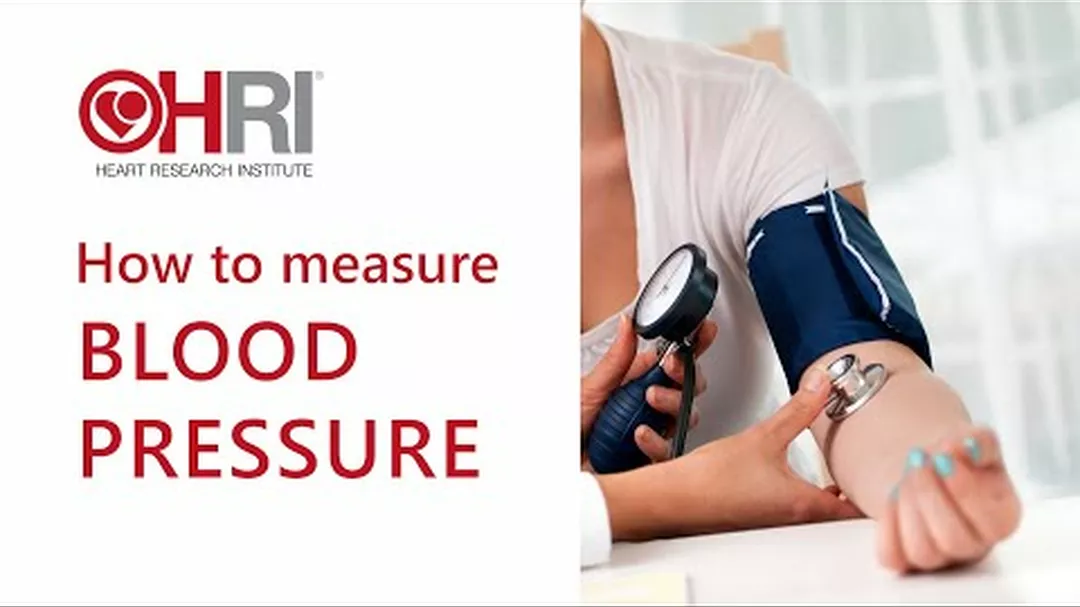Why blood pressure is important
Blood pressure is the force of blood pushing against the walls of your arteries as the heart pumps blood around your body. Blood pressure readings can give an indication of how hard your heart is working and are an important part of a general health assessment.
Your blood pressure changes and fluctuates throughout the day depending on many factors, such as activity level, emotional state and sleep.
High blood pressure can be silent, so it’s important to get regular blood pressure checks.
The most common way to measure blood pressure is via an inflatable cuff that wraps around the upper arm and is connected to a pressure-measuring gauge. You may have your blood pressure checked by a doctor or nurse, and home blood pressure monitors are also available.
If your blood pressure remains high over a long period of time, it can lead to heart conditions and cardiovascular diseases, such as heart attack, stroke, heart failure, or kidney disease.
What blood pressure numbers mean
Blood pressure is recorded as two numbers, one over the other, such as 120/80. Both are measured in units called millimetres of mercury (or mm Hg).
Systolic pressure: The top number, called the systolic pressure, is the pressure each time your heart contracts (or squeezes).
Diastolic pressure: The bottom number, or diastolic pressure, is the pressure in the artery as the heart relaxes before the next beat.
Normal blood pressure range by age and gender
A normal blood pressure varies from person to person. Your doctor will advise you on what is healthy for you, based on your medical history.
For most people, the following is a guide.
| Blood pressure | Systolic (top number) mm Hg | Diastolic (bottom number) mm Hg |
|---|---|---|
| Low | Less than 90 | Less than 60 |
| Optimal | Less than 120 | Less than 80 |
| Normal | 120–129 | 80–84 |
| Normal to high | 130–139 | 85–89 |
| High | Greater than 140 | Greater than 90 |
Around 120/80 mm Hg is often considered a typical blood pressure reading.
Below is the average blood pressure for children and teens:
| Age | Systolic (top number) mm Hg | Diastolic (bottom number) mm Hg |
|---|---|---|
| Newborns up to 1 month | 60–90 | 20–60 |
| Infants | 87–105 | 53–66 |
| Toddlers | 95–105 | 53–66 |
| Preschoolers | 95–110 | 56–70 |
| School-aged children | 97–112 | 57–71 |
| Adolescents | 112–128 | 66–80 |
In adulthood, the average blood pressures by age and gender are:
| Age | Women | Men |
|---|---|---|
| 18–39 years | 110/68 mm Hg | 119/70 mm Hg |
| 40–59 years | 122/74 mm Hg | 124/77 mm Hg |
| 60+ years | 139/68 mm Hg | 133/69 mm Hg |
High blood pressure usually does not have any symptoms. You can have high blood pressure and feel perfectly well. The only way to find out if your blood pressure is high is to have it checked regularly by your doctor or monitor it with a home blood pressure monitor.
Low blood pressure can be a problem if it has a negative impact on your body or affects the way you feel. For example, it can make people feel dizzy or faint.
If you have concerns about your blood pressure, speak to your doctor.
Download a guide to checking your blood pressure
Blood pressure vs heart rate
While both blood pressure and heart rate are related to the heart and are important health indicators, they are two different things.
As already stated, blood pressure is how powerfully your blood travels through your blood vessels. Heart rate is the number of times your heart beats in one minute.
An increase in heart rate does not mean your blood pressure is also increasing.
The effect of ageing on blood pressure
The chance of having high blood pressure increases as you get older.
This is due to structural changes in your body’s blood vessels or vascular system. Arteries get stiffer, which causes blood pressure to rise.
High blood pressure is one of the main risk factors for cardiovascular disease, especially heart attacks and strokes.
Monitoring blood pressure as you age
Many adults have high blood pressure but are unaware, as they have no noticeable signs or symptoms. That’s why it’s known as the “silent killer”.
That’s also why it’s essential to have regular medical examinations to make sure your blood pressure isn’t creeping up as you grow older.
If you are 18 or over, get your blood pressure checked at least every two years. If you are 45 and over, you should get your blood pressure checked annually as part of a regular Heart Health Check.
Preventing and controlling high blood pressure is important for your heart health and may benefit your brain health as well.
How to maintain healthy blood pressure at any age
If you do have high blood pressure, you can help manage it through some simple lifestyle changes.
- Maintain a healthy weight: Being overweight is known to raise blood pressure – losing excess weight can help lower blood pressure to healthier levels.
- Follow a healthy diet: It’s important to eat a nutritious diet that is low in salt, saturated fat, trans fat, LDL cholesterol and sugar. This means eating a variety of vegetables, fruit and whole grains and nutrients that can help lower blood pressure.
- Exercise regularly: Being physically active every day, even just via activities like walking and gardening, can help lower blood pressure.
- Quit smoking: Not smoking has been shown to reduce blood pressure as well as reduce its damaging effects on the arteries.
- Avoid or limit alcohol: Regular excessive drinking has a clear link to ongoing high blood pressure. It’s been shown that heavy drinkers with high blood pressure may be able to lower their levels by cutting back to moderate drinking.
Your doctor may also recommend you take medication to manage your blood pressure. Even if you need to take medicines, it’s still important to make healthy lifestyle changes.
How is HRI fighting high blood pressure?
HRI is conducting groundbreaking research from a broad range of angles to understand blood pressure and to find innovative ways of preventing, detecting and treating cardiovascular diseases that result from high blood pressure.
Our Vascular Immunology Group is working to understand the causes and progression of high blood pressure during pregnancy (preeclampsia) and examining the links between high blood pressure and cardiovascular disease in women.
Our Clinical Research Group is researching novel techniques for detecting pulmonary vascular disease (high blood pressure in the lungs), a very severe condition affecting young adults and (more so) older people.



